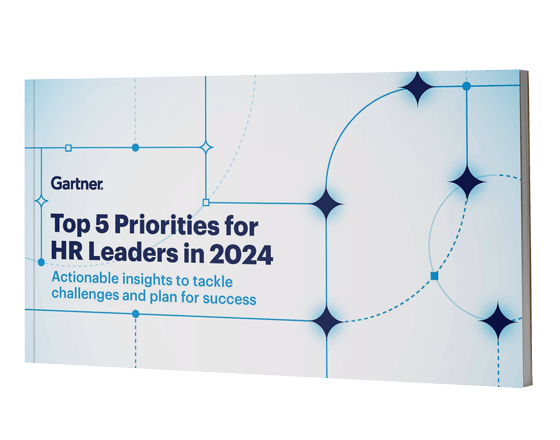Mental health – coping in a crisis
Are you facing lockdown related anxiety or do you know someone who is?
Covid-19 and the lockdown has left many people feeling particularly anxious. In fact, the UK mental health charity, SANE, says its telephone helpline has increased by 200% since the lockdown began.
This anxiety will continue as we begin to move out of lockdown and people start returning to work. So how can employers support their teams in achieving positive mental health and reducing anxiety? We catch up with Chief Psychologist at The GC Index, Dr John Mervyn-Smith, to find out how your internal dialogue can positively impact lockdown related anxiety…
Whether you are concerned about yourself, a loved one or perhaps a colleague’s mental health there are some simple steps you can take to help deal with the anxiety you or they might be experiencing.
GETTING THE BASICS RIGHT
It’s difficult to think rationally when you are not sleeping or allowing your body the rest it needs. Often our perspective on events can become distorted or perhaps more negative when we are run down.
Dr John says, “The key to maintaining ‘good’ mental health is knowing how to maintain and retain a balanced perspective when faced with real and/or perceived loss. Our perspective on events can become negative or distorted when we fall ill or are tired and when we feel isolated.”
He highlights the importance of:
1. Self-care: Make sure you are getting enough sleep and exercise etc.
2. Connectedness: Seeking other people’s perspectives
3. Perceived Resourcefulness: Our ability to come up with an action plan and problem solve.
A SIMPLE CHECKLIST
We have put together a simple check-list. If the answer is no to any of these questions the next step is to create a plan…
SELF-CARE
1. Do you have a daily Self-Care regimen?
2. Do you have routines in your day for eating and drinking in moderation?
3. Do you have routines in your day for exercise?
4. Do you get enough sleep?
5. Are you able to say ‘no’ to others’ requests of you?
CONTENTEDNESS
1. Do you have at least one person in your life in whom you can confide?
2. Do you find it easy to talk about yourself to others?
3. Do you have to care for someone/something other than yourself?
4. Do you find it easy to ask for help?
5. Do you belong to any informal groups?
6. Do you belong to any organised groups?
PERCEIVED RESOURCEFULNESS
1. Do you have an up to date CV?
2. Are you currently engaged in learning a new skill?
3. Are you currently engaged in acquiring new knowledge?
4. Do you have a positive attitude to learning?
5. Do you attribute your successes to yourself?
6. Do you attribute your failures to yourself?
OPTIMISM
1. Do you know when you’re being pessimistic?
2. Do you know when you’re being optimistic?
Simple yet effective questions to ask yourself or others.
Think about your internal dialogue
Looking after yourself means actively managing and developing your perspective on life and life’s events.
When I refer to perspective I mean our internal dialogue. It can be incredibly damaging when we lose perspective: When there is a mismatch between our expectations of the world and reality.
When you think about perspective think about the things that you say to yourself day to day about life’s events. For example, instead of thinking “I’m not going to be able to finalise my project today” look at what steps you can take to finalise it.
If we are having an off day or experiencing lack of sleep then our internal dialogue could be quite negative, which may hinder our perspective on things. This is why it can often help to have someone else to speak to and share how you are feeling about things.
You don’t need a psychotherapist to help you break these unhealthy patterns. Good friends can play that role and you for them.
Tap into The GC Index to support mental health
Here are some practical steps of how you can use your GC Index Profile, working with a Buddy, to make conscious your Internal Dialogue – those things that you say to yourself that can inhibit (depress) you inspire (lift) you and link each to specific triggers/events:
- Work with someone you trust to review your perspectives:
- Challenge thinking/logic
- Offer alternatives views
- Seek to put events into a broader context.
For example, a Strategist is driven by making sense of things in a way that brings purpose and direction but is currently feeling challenged because he can’t see a (purposeful) way out of this – he has lost his purpose, direction and clarity. Working with someone else can help create an action plan of how you can overcome problems.
Below I give some examples of the difference that a negative or positive internal dialogue will impact each of The GC Index Proclivities
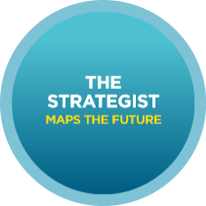 The GC Index Proclivity: The Strategist
The GC Index Proclivity: The Strategist
Existential Drive: Making sense of things in a way that brings purpose and direction
Inhibiting Internal Dialogue: ‘I can’t see a (purposeful) way out of this’
Negative Impact: A loss of purpose, direction and clarity
Inspiring Internal Dialogue: ‘I can see how events will unfold and how we can get through this’
Positive Impact: Confidence in what needs to be done
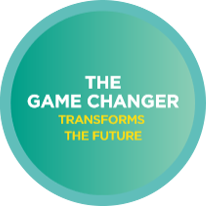 The GC Index Proclivity: The Game Changer
The GC Index Proclivity: The Game Changer
Existential Drive: A need for creative expression
Inhibiting Internal Dialogue: ‘I can’t be myself’
Negative Impact: A loss of identity
Inspiring Internal Dialogue: ‘Let’s look at things differently’
Positive Impact: A world of new possibilities
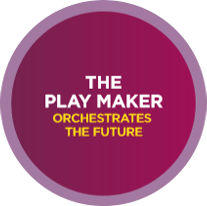 The GC Index Proclivity: The Play Maker
The GC Index Proclivity: The Play Maker
Existential Drive: Emotional connection with other human beings
Inhibiting Internal Dialogue: ‘I’m totally alone in this world’
Negative Impact: A crisis of existence
Inspiring Internal Dialogue: ‘An opportunity for everyone to shine’
Positive Impact: We are all in this together
 The GC Index Proclivity: The Polisher
The GC Index Proclivity: The Polisher
Existential Drive: Striving for growth and perfection- feeling adequate
Inhibiting Internal Dialogue: ‘My life is just a mess -it’s out of control’
Negative Impact: A loss of order
Inspiring Internal Dialogue: ‘This is an opportunity to make things better’
Positive Impact: Anything is possible
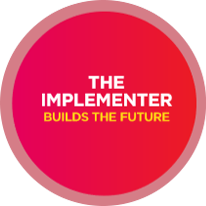 The GC Index Proclivity: The Implementer
The GC Index Proclivity: The Implementer
Existential Drive: Being active in a way that gives a sense of potency
Inhibiting Internal Dialogue: ‘I don’t know what to do; what’s the point?’
Negative Impact: A loss of potency
Inspiring Internal Dialogue: ‘If we do these things then we will move forwards positively’
Positive Impact: Purpose driven action
Finding support
Many people feel alone or stuck when they experience trauma, things are out of their control or they face uncertainty, even when surrounded by caring friends and family. Sharing why you feel ‘stuck’ and some of the internal dialogue you are experiencing in particular areas with someone you trust may help you to think of strategies to move forward.




